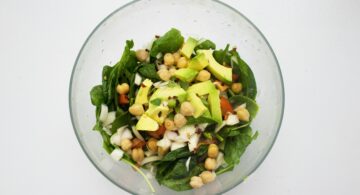Smash Blood Sugar Spikes with Helpful Apple Cider Vinegar
Diabetes is the seventh leading cause of death in the U.S., and with the latest reports showing the number of Americans estimated to be diagnosed with prediabetes at an astounding 86 million, and a further 29.1 million diagnosed with diabetes, it’s no surprise that there are millions of people who are searching for ways to avoid blood sugar spikes.
If you’re one of those people, you’re probably aware of both the short- and long-term effects of a post-meal blood sugar spike. Some of the more immediate effects can include severe fatigue and tiredness, so much so you that you could find yourself plopping down into a chair and quickly falling asleep. Your vision might blur, and you probably won’t feel very well overall either.
Over the long-term, if those blood sugar spikes continue, your HbA1c level will rise, which has been scientifically shown to increase the risk of some serious complications like heart disease, kidney disease and retinopathy, which can even result in the loss of vision.
One of the most common approaches to lowering blood sugar spikes after a meal is to take more insulin – but unless your blood sugar levels remain high for three to six hours after eating, that’s not going to help, and it will likely result in low blood sugar levels before you get to your next meal.
What you eat is a very important part of controlling blood sugar – in fact, some experts, like Mark Hyman, MD, author of The Blood Sugar Solution, believe that eating the right foods not only help one to manage blood sugar levels, but they may even be able to help reverse diabetes.
This is where apple cider vinegar comes into play for smashing those blood sugar spikes.
Documented benefits of apple cider vinegar
The benefits of apple cider vinegar have been well-documented. It has no adverse side effects, and it costs considerably less than most conventional treatments. Vinegars of all types have long been popular for use as a weight loss aid, as they help make you feel fuller. One study found that participants who ate a slice of bread along with apple cider vinegar felt fuller than those who ate bread alone.
A study conducted out of the University of Arizona discovered that drinking apple cider vinegar before a meal can help reduce the release of sugar into the blood and improve insulin sensitivity. This is similar to how some diabetes medications are designed. Certain medications block the digestion of starches and sugars. By doing so, they are able to prevent blood sugar spikes, helping to maintain healthy blood sugar levels.
Carol Johnston, Professor and Associate Director of the Nutrition Program of Arizona State University, who has been studying the effects of vinegar on blood glucose for more than a decade, says that apple cider vinegar can act like some diabetes medications, helping to block the body’s ability to digest sugar and starch. Her theory, according to an article by NYMag, is that “acetic acid blocks an enzyme that digests starches, thereby preventing some carbs from being absorbed.”
Blood sugar response involving apple cider vinegar and healthy individuals
Consuming apple cider vinegar has been found to be effective not just in those who’ve been diagnosed with diabetes, but healthy individuals as well. According to a study published in the European Journal of Clinical Nutrition, researchers studied the effects vinegar’s acetic acid on blood glucose response after healthy people ate a meal. They then discovered that the acetic acid had a potent effect on glycemic response, leading the experts to conclude that vinegar can help regulate blood sugar levels whether one is healthy pre-diabetic, or has been diagnosed with diabetes.
Apple cider vinegar at bedtime
While much of the research on apple cider vinegar has been focused on drinking it before a meal, one study found that taking it just before bedtime was able to help moderate blood sugar upon waking. The study involved 11 participants diagnosed with type 2 diabetes who weren’t taking insulin, but were taking oral anti-diabetic medication. They were given either an ounce of cheese and water, or an ounce of cheese and two tablespoons of vinegar at bedtime each night for two days. Another trial was conducted several days later, in which the two groups were reversed.
The experts found that those who ingested vinegar and cheese saw a drop in fasting blood glucose levels by 4 percent, compared to 2 percent who received cheese and water. But when the researchers examined the data closer, they discovered that those with the highest fasting glucose levels experienced a more significant difference, with blood glucose levels dropping by 6 percent.
Taking apple cider vinegar to smash your blood sugar spikes
If you’d like to try it, keep in mind that the results can vary from one individual to the next – most studies concerning apple cider vinegar have found that one to two tablespoons are sufficient to receive the benefits.
You may want to experiment by trying both, meaning sipping it just before a meal as well as before bed.
Be sure to use organic, raw and unfiltered apple cider vinegar like Bragg’s or Spectrum Naturals. Add a tablespoon to warm, but not too hot, water. If you don’t like the taste, you can add a dash of cinnamon or a teaspoon of raw, organic honey (don’t overdo it, because honey is mostly sugar). If you’re one of the few people that really enjoy the taste of vinegar – don’t be tempted to drink it undiluted as it can cause burns to the sensitive tissues of the throat and mouth.


















